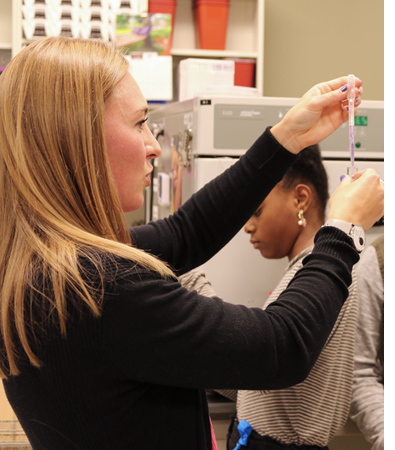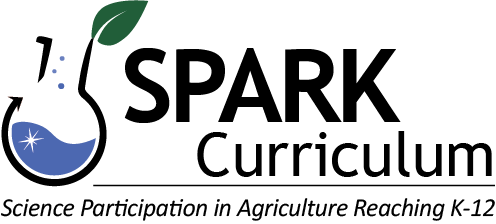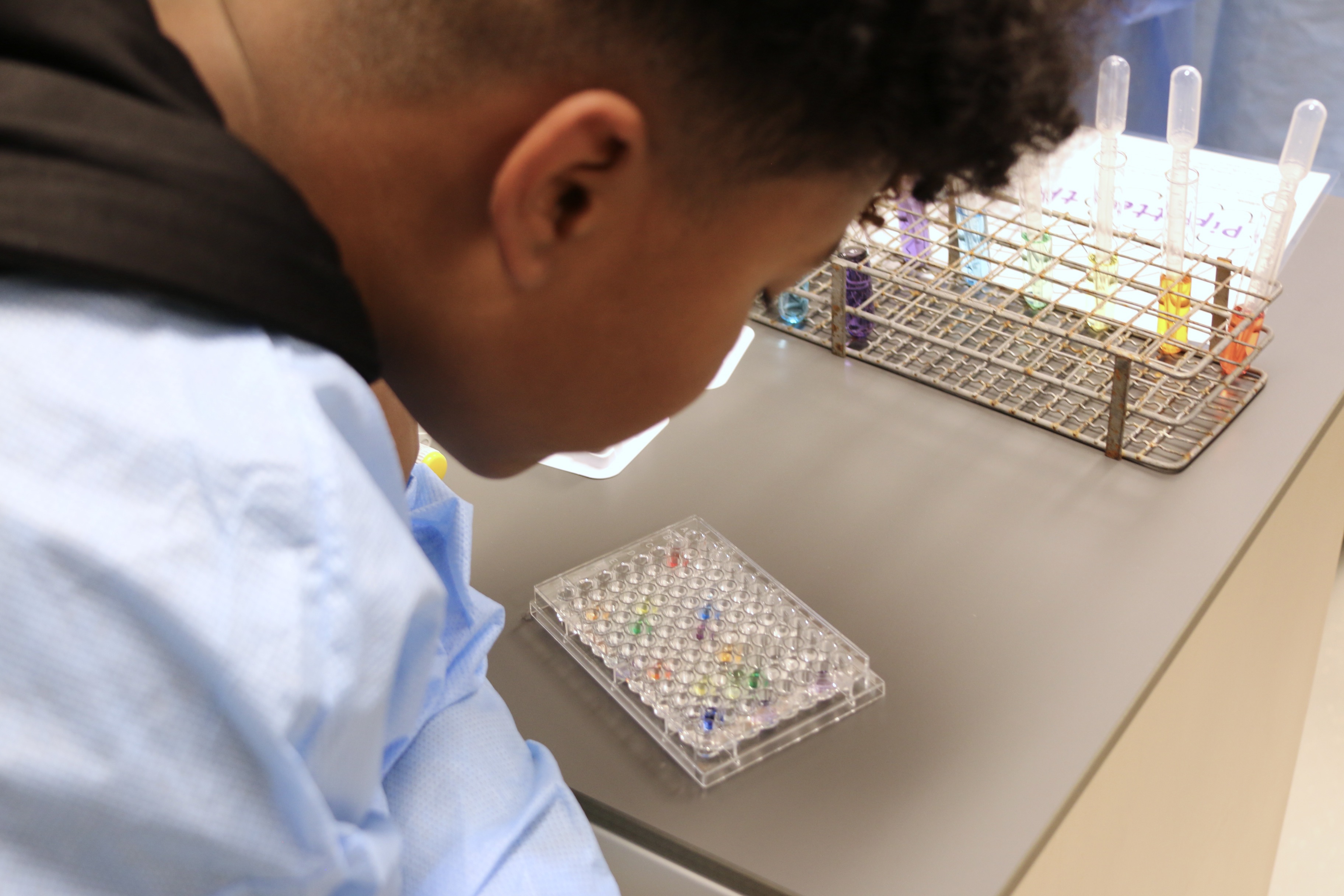Bring the science of agriculture to your classroom with SPARK!

Science Participation in Agriculture Reaching K-12 (SPARK)
The SPARK outreach curriculum includes agriculture-related science lessons designed to be completed in the classroom, sharing the knowledge that teachers and students receive during an in person visit to the labs.
The Division of Laboratory Services is filled with scientists who are passionate about SPARKing an interest in agricultural science. Launched in 2019, the Outreach Program offers groups in-person lab tours along with hands-on experiences.
The purpose of the SPARK curriculum is to help us reach meet our goal of providing more students across the state with laboratory science activities focused on agricultural topics. We recognize the challenges teachers face when organizing a field trip whether transportation funding, large class size or distance. The SPARK curriculum is available any time, in any setting, for a more equitable and inclusive experience.

Free educational curriculum!
Agriculture-related science lessons designed to be completed in the classroom. Accessible via Google classroom and organized by subject, the materials are designed for educators looking to engage students in science concepts that relate to Colorado agriculture. To request access, fill out this form.
What is SPARK?
Science Participation in Agriculture Reaching K-12 (SPARK) is a set of online lessons created by scientists at the Colorado Department of Agriculture’s Division of Laboratory Services. Organized by subject, the materials are designed to meet the needs of your classroom. The laboratories include the Animal Health Lab (AHL), Biochemistry Lab (BCL), and Metrology Lab (MTL). The lessons were developed from hands-on activities that students participate in when they tour the labs in person. The activities were designed with teachers in mind and include lesson plan templates, student worksheets, materials lists with items commonly stocked in secondary science classrooms, presentations to guide the activity, and answer keys. All materials are stored on Google Classroom for quick integration into your classroom.
Who should use this curriculum?
Science and agriculture have a place in ALL communities. These materials are designed for educators looking to engage students in science concepts that relate to Colorado agriculture. Lessons are focused on secondary science knowledge (6th-12th grade), but can be modified for younger ages.
Topics and concepts covered:
- General laboratory methods and tests
- Regulatory testing for diseases within livestock (Microbiology)
- Understanding measurement (Metrology) **also suitable for math content classes
- Substance identification using various testing methods (Chemistry)

Learn more about the CDA Laboratories
BioChem Laboratory
The BioChem (analytical) Laboratory utilizes a large array of analytical instrumentation to measure quantities of pesticide residues, food impurities, pathogens and feed and fertilizer nutritional components. Employing microbiological and analytical chemistry testing, the laboratory analyzes various agricultural samples in addition to ground and surface waters to support a number of Department regulatory programs.
Learn more about the BioChem Lab.
Metrology Laboratory
Any commercial transaction based on weight or volume is based on the buyer's and seller's confidence in the accuracy of the measuring device. The Metrology Lab certifies reference weights and volume measures used in field calibrations of such measuring devices. These weights and measures are certified in the laboratory by physical comparisons tracing back to the international standards through the National Institute of Standards and Technology (NIST).
Learn more about the Metrology Lab.
Animal Health Laboratory
The Animal Health Laboratory facilitates the movement of healthy livestock by aiding veterinarians in meeting USDA and CDA livestock disease regulations. The lab offers a variety of serological and molecular testing for entry into shows, change of ownership, and interstate movement of livestock.
Learn more about the Animal Health Lab.
Interested in using these lessons in your classroom?
Submit a SPARK interest form to receive your Google classroom access code. All materials are free but we ask that you complete the feedback form. We hope the materials provide a valuable experience for your students.
With additional questions, contact the DLS Outreach Team.